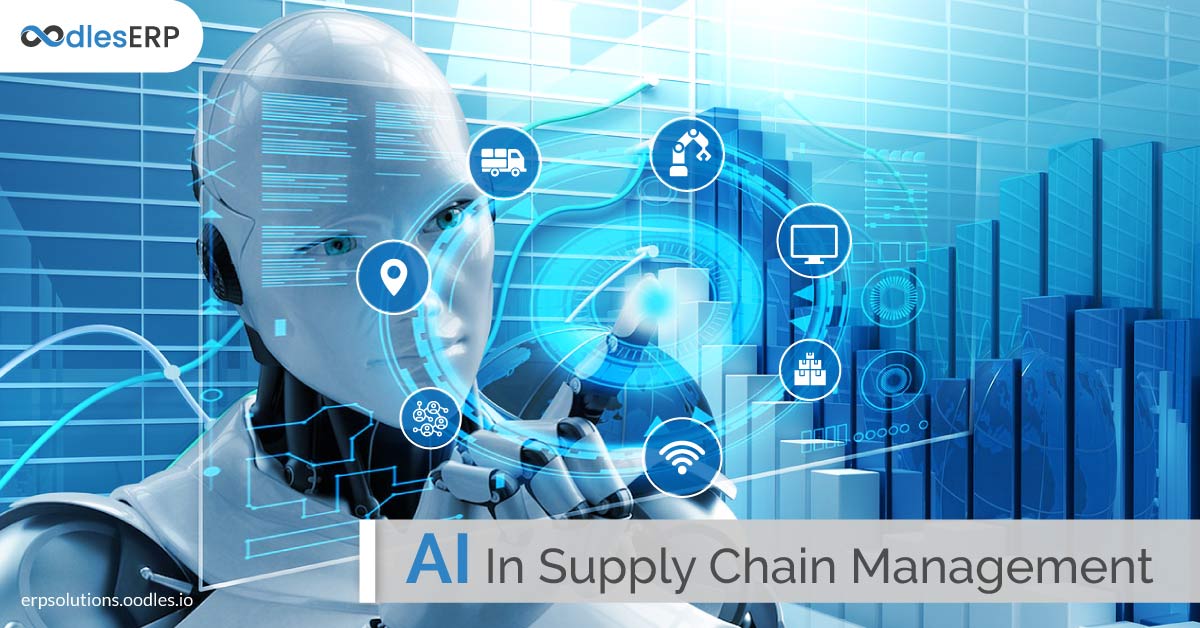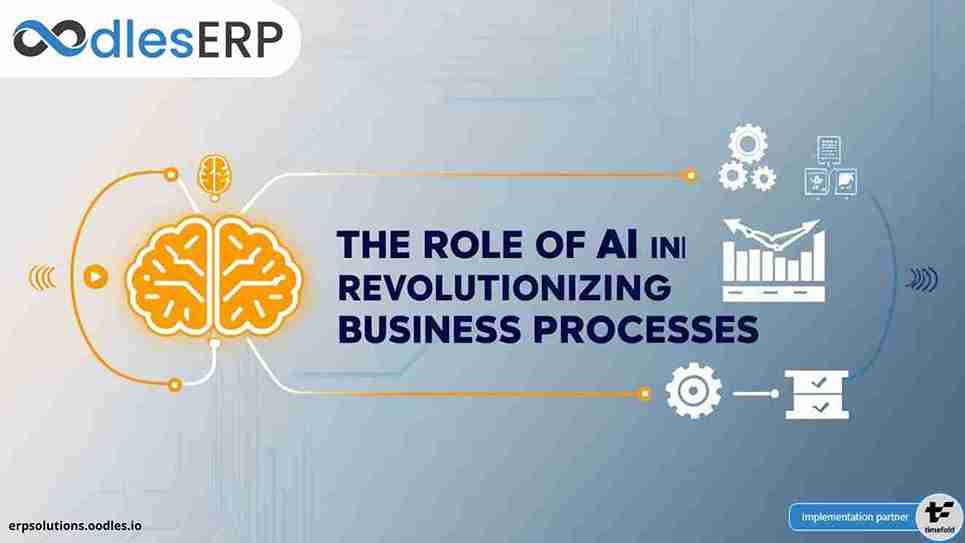AI in Supply Chain Management: An Overview
According to a recent McKinsey global survey (November 2018), the supply chain is among the top three industries that will benefit from the adoption of AI. From tracking goods, scanning invoices to predicting payments, AI can completely transform financial transactions involved in supply chain processes. Supply chain systems integrated with AI and ML modules enable organizations to measure the effectiveness of existing strategies and factors that cause failures.
AI enables retailers to understand how their supply chain is functioning and explore room for improvement. It also eliminates overhead costs.

Impact of AI on Retail Supply Chain and Logistics
How AI is Revolutionizing Supply Chain Management
1.) Enhances Productivity
AI provides accurate analysis of supply chain management performance. It reveals factors that impair performance.
AI combines the power of three technologies- reinforced learning, supervised learning and unsupervised learning to identify factors affecting supply chain performance.
For instance, supervised learning has the capability to detect identity fraud and make informed predictions. Additionally, reinforcement learning can enable real-time decisions by providing relevant data.
2.) Improves Supplier Selections and Increases Effectiveness
AI increases the efficiency of supplier relationship management. It can analyze supplier related data like audits, credit scoring, evaluations and performance reports. It also provides information to make future decisions about suppliers.
AI empowered supply chain systems can make better supplier decisions to enhance customer service.
3.) Enhances Demand Forecasting Accuracy
AI enables tracking and measurement of various factors such as consumer attributes, real-time sales, and whether to improve demand forecasting accuracy. It continuously adjusts the forecast based on these factors.
The availability of all the information enables organizations to reshape warehouse management with automated sorting, self-driving forklifts, and self-managing inventory systems.
Read Also: Optimizing Supply Chain Management with Robotic Process Automation
4.) Increased Contextual Intelligence to Reduce Operations Costs
AI technologies provide new insights into a wide range of aspects including supply chain management, logistics and warehouse management.
The key AI technologies for better supply chain management are:
AI-powered Visual Inspection: Taking photographs of cargo using special cameras enable organizations to identify damage and appropriate corrective action.
Intelligent Robotic Sorting: Effective and high-speed sorting of parcels and shipments. Parcels are delivered to customers with optimal routes by intelligently identifying parcel bar codes.
5.) Enhances Customer Experience
AI personalizes the relationship between logistics providers and customers. For instance, DHL Parcel Cooperation is using Amazon’s Alexa powered Echo to create a personalized customer experience. Amazon’s Alexa enables customers to track parcels and get accurate shipment information. A customer can also query Alexa to track the current whereabouts of their shipment.
Business Case for Implementing Artificial Intelligence (AI) in Supply Chain Management
Artificial Intelligence plays a crucial role in optimizing the supply chain. Organizations that don’t implement AI risk lagging behind the competition and struggle to maintain competitiveness.
For instance, Natural Language Processing (NLP), a technology that enables computers to interact with human speech through AI and Machine Learning, depreciates administrative overhead in the supply chain.
NLP eliminates language barriers to improve relationships with foreign suppliers and customer service. It streamlines communications regardless of location or parties involved.
AI technology is necessary to plan transportation routes for containers in severe climatic conditions. Supply chain managers can quickly reroute containers during bad weather.
Challenges of Using Artificial Intelligence in Supply Chain
One of the biggest challenges identified by Mckinsey survey is finding skilled people to implement AI in supply chain management effectively. Humans are necessary for the implementation and success of an automated system. AI in supply chain management enhances efficiency, analyzes data, boosts decision making and accelerate actions to simplify the tasks of supply chain stakeholders.
For any business, accurate and updated data holds the key to generating valuable insights and reliable information. AI insights will be ineffective if the quality of data is not good. Supply chain leaders should integrate AI solutions with their systems that are specifically designed to analyze and clean data.
Gain Benefits of AI in Supply Chain Industry with Oodles
We have experience in providing end-to-end customized development services to organizations that require enhanced supply chain planning and execution. From asset tracking solutions to Electronic Data Interchange (EDI) and shipping solutions to order management systems, we provide supply chain software development services according to business requirements.
Our skilled team of IT professionals integrates artificial intelligence with supply chain systems while catering to existing business requirements. Our advanced AI application development services enable businesses to gain a high level of accuracy and enhanced customer experience.
Concluding Thoughts
AI has the power to transform the way business is done. According to PwC, AI could contribute up to $15.7 trillion to the global economy by 2030. AI empowered supply chain systems can analyze and track data, detect anomalies and generate predictions to improve the supply chain. AI in supply chain management automates routine tasks and overcomes business challenges.










